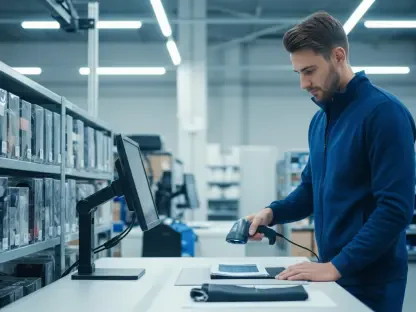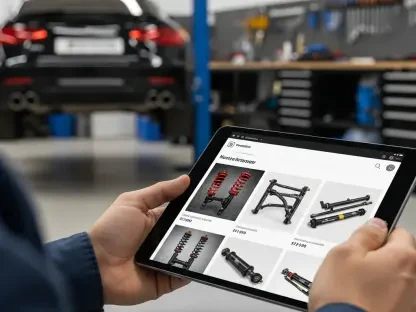Choosing the right point-of-sale (POS) system is crucial for the success of any retail business. With the rapid advancements in technology, the POS systems of 2025 offer a range of features that can significantly enhance business operations. This article delves into the best retail POS systems available in 2025, providing a comprehensive analysis to help you make an informed decision. Understanding the various facets of these systems can help businesses of all sizes streamline their operations, improve customer engagement, and ultimately drive growth. The integration of modern POS systems can prove to be a game changer in the competitive retail landscape.
The Importance of Unified Data
In today’s retail environment, having a POS system that centralizes data is essential. Unified data allows businesses to seamlessly manage sales, orders, inventory, and customer information across multiple channels. This integration ensures that all aspects of the business are synchronized, providing a cohesive and efficient operation. Without a unified data system, businesses can struggle to maintain consistency and face challenges in tracking and analyzing essential business metrics. The ability to consolidate data across various facets can significantly enhance operational efficiency and decision-making processes.
Unified data also enables retailers to gain valuable insights into their business performance. By having access to real-time analytics and detailed reports, businesses can make data-driven decisions that enhance their overall strategy. This capability is particularly important for retailers who operate both online and in physical stores, as it ensures consistency and accuracy across all platforms. Furthermore, unified data helps in predictive analytics, allowing retailers to anticipate trends and adjust their inventory and marketing strategies accordingly. This level of insight is invaluable in today’s fast-paced retail environment where customer preferences can shift rapidly.
Omnichannel Capability
Modern retail POS systems must support omnichannel sales to stay competitive. Omnichannel capability allows retailers to sell their products through various channels, including brick-and-mortar stores, online platforms, and social media. This flexibility is crucial for meeting the diverse shopping preferences of today’s consumers. As customers increasingly seek seamless integration between their online and offline shopping experiences, having a robust omnichannel POS system is no longer just an advantage but a necessity. It can lead to a more cohesive and satisfying shopping journey, enhancing customer loyalty and retention.
A POS system with strong omnichannel support ensures that inventory levels are accurately tracked across all sales channels. This feature helps prevent stockouts and overstock situations, leading to better inventory management. Additionally, omnichannel capability enhances the customer experience by providing a seamless shopping journey, whether customers are purchasing in-store or online. When transactions and inventory management are interconnected, it not only improves efficiency but also builds trust with customers who expect the same level of service irrespective of the sales channel. Ultimately, this agility in management can significantly boost a retailer’s bottom line by ensuring that their operations are aligned with consumer demands.
Retail Analytics and Reporting
Access to real-time analytics and detailed reporting is a vital feature of any modern POS system. Retailers need to understand their business performance and customer behavior to make informed decisions. A robust POS system provides comprehensive reports on sales, inventory, and customer data, enabling businesses to identify trends and opportunities. These insights are crucial for strategic planning and can drive more effective marketing initiatives, better inventory control, and overall improved operational efficiency. Being able to leverage detailed analytics can be a major differentiator in the retail industry, where data-driven decision-making leads to better results.
Retail analytics also play a crucial role in optimizing marketing strategies. By analyzing customer data, retailers can create targeted marketing campaigns that resonate with their audience. This data-driven approach helps increase customer engagement and loyalty, ultimately driving sales and revenue growth. Through detailed analysis, retailers can identify which products are performing well, understand seasonal trends, and adjust their strategies to better meet customer needs. This proactive management not only keeps businesses competitive but also ensures that they can adapt to shifts in market dynamics swiftly and efficiently.
Inventory and Staff Management
Effective inventory management is a cornerstone of successful retail operations. A good POS system should offer features that allow retailers to track stock levels, set reorder alerts, and conduct inventory counts seamlessly. This capability ensures that businesses can maintain optimal inventory levels, reducing the risk of stockouts and excess inventory. Managing inventory efficiently not only optimizes storage costs but also ensures that the right products are available at the right time, meeting customer demands promptly. Integrating these features into a POS system streamlines operations and helps in maintaining a balanced inventory.
Staff management is another critical aspect of a POS system. Retailers need tools to manage employee roles, track performance, and control access to sensitive information. A POS system with robust staff management features helps streamline operations and improve overall efficiency. It also ensures that employees have the necessary tools and information to provide excellent customer service. By automating staff scheduling, tracking hours, and monitoring sales performance, retailers can ensure a highly productive workforce. Additionally, these systems improve accountability and can help in minimizing internal errors and discrepancies.
Enhancing Customer Experience
The best POS systems go beyond basic transaction processing to enhance the customer experience. Personalizing the shopping journey is a key factor in building customer loyalty. A POS system that integrates with customer data can provide targeted offers and loyalty programs, making customers feel valued and appreciated. Enhancing the customer experience through personalization not only boosts sales but also fosters loyalty, turning one-time buyers into repeat customers. This integration can lead to a deeper understanding of customer preferences, allowing for tailored marketing efforts that resonate more effectively with the target audience.
Offering various payment options is another way to improve the customer experience. Modern POS systems should support multiple payment methods, including credit cards, mobile payments, and contactless transactions. This flexibility ensures that customers can choose their preferred payment method, leading to a smoother and more satisfying shopping experience. By accommodating diverse payment preferences, retailers can prevent lost sales due to payment friction, thereby enhancing overall customer satisfaction. Additionally, the inclusion of various payment options helps cater to a broader demographic, ensuring that all customer preferences are met efficiently.
Support and Security
Reliable customer support and secure transaction processing are non-negotiable features of any POS system. Retailers need assurance that their POS system will function smoothly and that any issues will be promptly addressed. A POS system with 24/7 customer support provides peace of mind and ensures that help is available whenever needed. Timely support can significantly reduce downtime and operational disruptions, enabling continuous, efficient service. This reliability is crucial for maintaining seamless operations and ensuring that any technical hiccups do not impact the customer experience negatively.
Security is also a top priority for POS systems. Features such as encryption, PCI compliance, and fraud protection are essential to safeguard sensitive customer information. A secure POS system helps build trust with customers, ensuring that their data is protected during transactions. Implementing robust security measures can prevent breaches and associated financial and reputational risks. In an age where data security is paramount, having a POS system that prioritizes this aspect is crucial for maintaining customer trust and complying with regulatory requirements.
Shopify POS
Shopify POS is a top choice for retail businesses of all sizes due to its comprehensive features and flexibility. It allows retailers to manage both in-store and online operations from a single platform, making it an ideal solution for omnichannel sales. Shopify POS supports real-time analytics, detailed inventory management, and customer profiles, providing a robust toolset for retailers. The integration with Shopify’s extensive ecosystem of tools and plugins makes it highly adaptable to various retail needs, ensuring businesses can customize their operations to fit unique requirements.
The system also integrates with a wide range of third-party tools and services, offering extensive customization options. This flexibility ensures that Shopify POS can adapt to the unique needs of different retail businesses, from clothing stores to health and beauty shops. Additionally, Shopify POS provides a seamless experience that connects online and offline sales, making it easier for businesses to manage their operations efficiently. With features like smart inventory management and customer profiling, Shopify POS stands out as a versatile and powerful tool for modern retail businesses looking to streamline their operations and enhance the shopping experience.
Clover POS
Clover POS is another robust option that provides a range of features designed to optimize retail operations. It offers comprehensive inventory management, employee management, and reporting tools that help businesses run smoothly. Clover POS supports various payment methods, ensuring that customers can choose their preferred mode of payment, enhancing their shopping experience. The system is known for its user-friendly interface and flexibility, making it suitable for both small and large retail operations. Clover POS also integrates with a variety of apps and services, providing additional functionality and customization tailored to specific business needs. This adaptability makes Clover POS a reliable choice for retailers aiming to improve efficiency and customer satisfaction.









